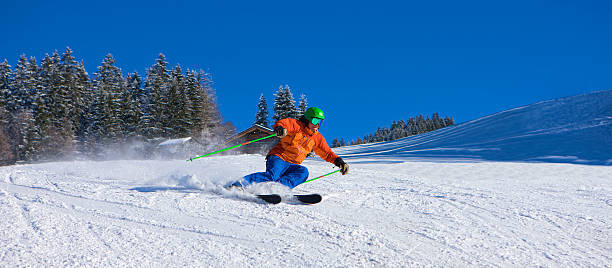DIY Snowboard Repair: A Practical Guide for Every Rider
Cuerpo

Snowboarding enthusiasts know that riding through snowy trails and terrains can sometimes lead to damaged boards. From minor scratches to more significant structural issues, knowing how to perform basic snowboard repair can save you from frequent trips to the repair shop and keep your gear ready for the slopes. This practical guide covers essential repair techniques that every snowboarder should know to maintain their board’s performance.
Common Issues Requiring Snowboard Repair
Every snowboard faces wear and tear with consistent use. Here are some common issues that might require repairs:
1. Core Shots
Core shots are severe gouges that reach the core of your board, exposing it to moisture. Left untreated, these can lead to serious damage, making core repairs essential.
2. Burrs and Dull Edges
When the edges of your board become dull, your control on ice diminishes. Sharpening them restores your grip and makes carving easier and safer.
3. Base Drying Out
If the base of your snowboard appears white and chalky, it may be due for waxing. A dry base slows down your ride and decreases performance.
4. Loose or Broken Bindings
Bindings take the brunt of the force when you ride. Regularly checking and repairing bindings is essential for safe snowboarding.
Essential Snowboard Repair Tools
Basic snowboard repair requires a few tools, many of which you can find in a general snowboard repair kit:
- P-Tex sticks: To fill in gouges on the base.
- File and edge tuner: For sharpening edges.
- Base cleaner: For preparing the surface before repairs.
- Screwdriver: For tightening and adjusting bindings.
- Waxing iron and wax: To keep the base smooth and fast.
Step-by-Step Snowboard Repair Techniques
Repairing Core Shots and Gouges
Core shots can be intimidating to repair, but with a P-Tex stick and some patience, you can restore your board.
- Clean the Area: Make sure the area is dry and free from any debris.
- Melt the P-Tex: Light the P-Tex stick and let it drip into the gouge. Be careful not to let the flame contact the board directly.
- Smooth the Surface: Once the P-Tex cools, use a metal scraper to level the area with the board.
Edge Tuning and Sharpening
Tuning the edges of your board keeps you in control on hard, icy surfaces. Here’s how to sharpen edges:
- Set the Board Securely: Position the board securely to avoid any movement.
- Use an Edge Tuner: Run the tuner along the edge, maintaining consistent pressure.
- Smooth with a File: Use a metal file to refine and smooth out the edges.
Waxing the Base
Waxing is a crucial part of snowboard maintenance. Here’s how to wax your board for the best performance:
- Clean the Base: Remove any old wax or debris from the base.
- Apply Wax: Drip wax over the base with a waxing iron. Spread it evenly by running the iron back and forth.
- Scrape and Buff: Once the wax cools, scrape off the excess with a plastic scraper and buff the surface.
When to Seek Professional Help
If you notice severe damage like broken edges or deep core shots, it’s best to visit a professional snowboard repair shop. Professionals have specialized tools and experience to handle complex repairs.
Preventative Tips for Snowboard Maintenance
To minimize the need for repairs, take some preventative steps:
- Avoid rocky areas: Rough terrain can lead to core shots and severe scratches.
- Regularly check bindings: Loose or damaged bindings affect stability.
- Store the board properly: Moisture can lead to rust, so always store your board in a dry area.
Conclusion
With some basic snowboard repair skills and tools, you can handle many common issues that arise from regular use. Regular maintenance, timely repairs, and a little preventative care will keep your snowboard in peak condition season after season. Snowboarding is all about adventure, so ensure your gear is up to the challenge and ready for every slope by mastering essential repair techniques.









Comentarios